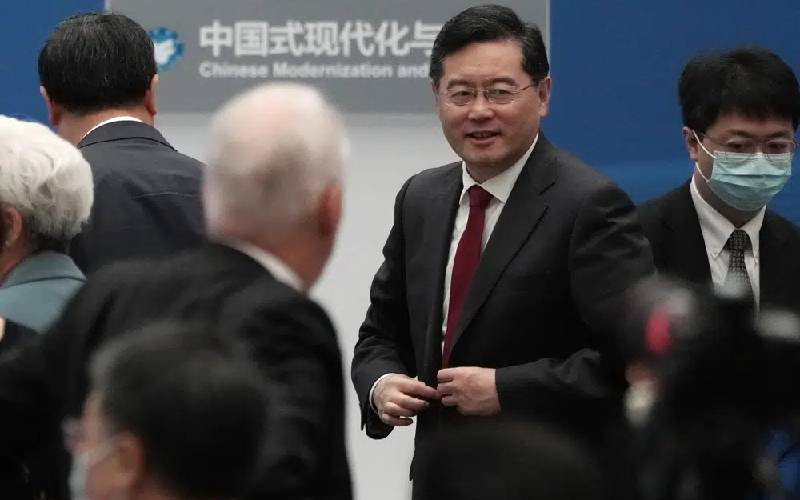×
The Standard e-Paper
Fearless, Trusted News

China's foreign minister warned Taiwan and its supporters on Friday that they are "playing with fire" if they go against Beijing's demand to exert control over the self-governing island democracy.
Qin Gang's remarks came at the end of a speech espousing China's contribution to the global economy and the interests of developing nations, in which he repeatedly praised Communist Party Secretary General Xi Jinping's Global Security Initiative.